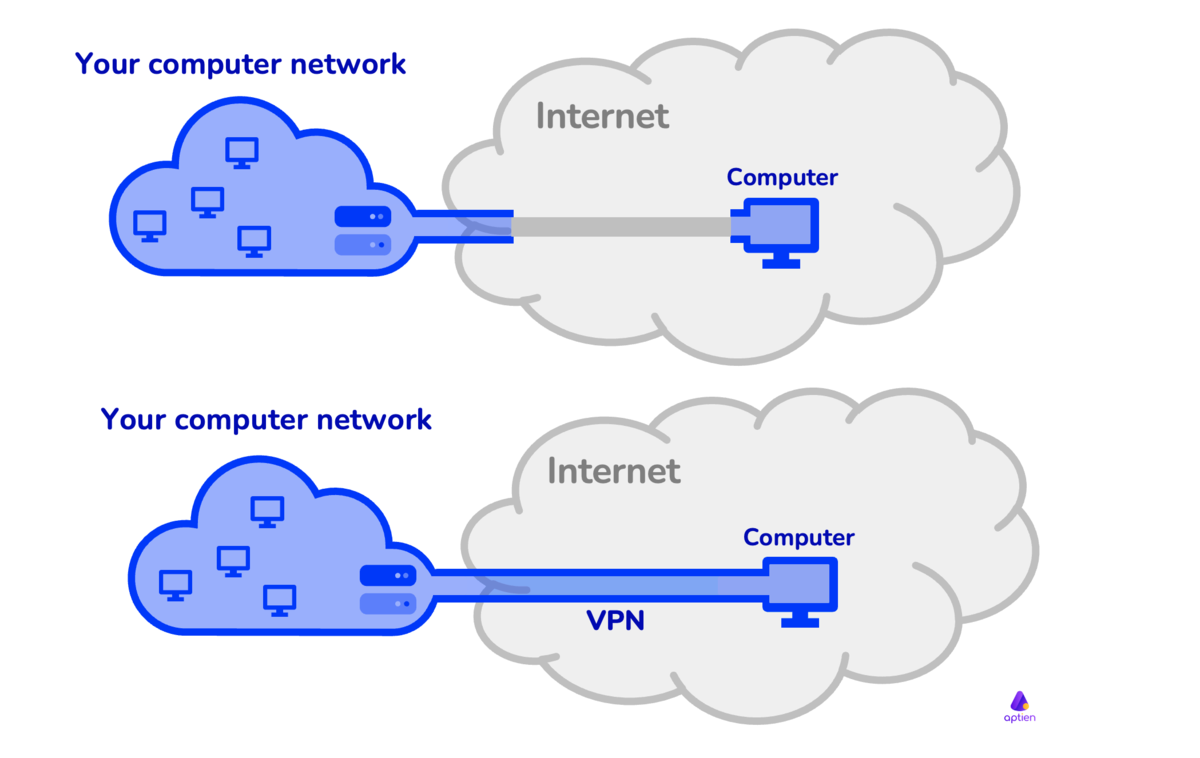Definition of VPN
Company VPN (Virtual Private Network) provides a tunnel between the company network and an employee's computer that is connected remotely over an internet connection. Using a company VPN employees have secure access to the company network when they are outside the company, for example, they are connected via a public Wi-Fi network, they work from home, from a customer's site or anywhere else in the field outside the company. A company VPN creates a secure connection between the computer and the corporate network.
- Company VPN increases the security of employees' connections to the company network
- It allows you to securely connect your employees' devices even when they are working remotely
- Employees' devices work as if they were part of your corporate network even when connected remotely
In addition to a good firewall and antivirus protection, a corporate VPN is another key pillar of company network protection. It can be said that it is even a necessary element of security for companies whose people work remotely and need to connect "to the company", because it allows users to work securely from anywhere with company data.
How a company VPN works
- A VPN creates a secure tunnel between your computer and the corporate network
- VPN is a security solution that provides a tunnel between your organization’s resources and the employees accessing them
- This means that only users connected via the VPN server can access the company network
- only employees connected to the VPN servers can access company resources on the network
- The connection between the computer and the company network is encrypted (end-to-end), so communication is secure
- It is advisable to dial up a VPN connection every time an employee uses a computer outside the organization
- A VPN connection between two corporate networks or locations is referred to as a site-to-site VPN
